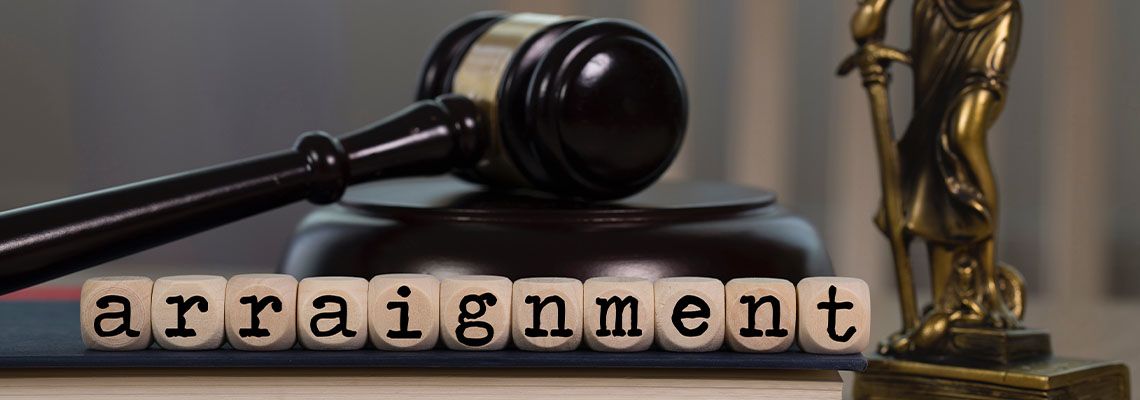
What to Expect at Your Arraignment
If you have been arrested and charged with a crime in Texas, you may be wondering what happens next. For many individuals arrested for crimes, an arraignment is one of the most confusing and scariest steps in the criminal justice process. Understanding the arraignment process can help you make informed decisions about your case and prepare for what lies ahead.
Consider contacting a knowledgeable attorney if you are facing criminal charges and are not sure what to expect at your upcoming arraignment. The criminal defense attorney of The Linder Firm can help you prepare for all stages of the criminal justice process, including your arraignment. With offices in Frisco and Dallas, Texas, Attorney Phillip Linder serves individuals accused of criminal offenses throughout the Dallas Metro and North Texas.
What Is an “Arraignment?”
Essentially, an arraignment is the first time you go to court and appear in front of a judge. It is a court hearing during which a judge informs a defendant of their charges and asks them to enter a plea. The three possible pleas are “guilty,” “not guilty,” or “no contest.” After the defendant has entered their plea, the judge will then address bail, if any applies to their circumstances. An arraignment is also when attorneys must meet all deadlines for filing motions, such as a motion to suppress evidence or a motion for change of venue.
When Will the Arraignment Take Place?
Typically, an arraignment is held within about 72 hours of an arrest. Texas law states that an arraignment cannot take place until at least two entire days (48 hours) have passed after the day on which the defendant was served with a copy of the indictment. The only exceptions to this rule are: (1) if the defendant is on bail or (2) the right to such delay was waived.
When a defendant is allowed to post bond, their arraignment may be held within one to three weeks after their arrest. If you are confused about when to expect your arraignment to take place, consider contacting a knowledgeable attorney to review your particular situation.
What Occurs at the Arraignment?
According to the Texas Department of Public Safety (DPS), about 800,000 crimes are committed in the state of Texas each year. Those who face criminal charges in Texas must attend their arraignment hearing as part of the criminal justice process. Here’s what to expect at your arraignment:
You will be informed of the charges filed against you. During the arraignment, the prosecutor will read the formal charges against you, which is called an indictment. If you do not have an attorney, this is your first opportunity to hear what you are being charged with.
The court determines whether you have legal counsel. If you cannot afford an attorney, the court will appoint one for you. You also have the right to retain your own attorney.
You enter an initial plea of guilty or not guilty. Once the charges have been read, you will be asked to enter a plea of guilty or not guilty. If you plead guilty, the judge will sentence you immediately. If you plead not guilty, the judge will set a date for trial.
The judge establishes the bail amount. Bail is money that ensures that you will return for future court appearances. The amount of bail is based on the severity of the crime, your criminal history, and whether you are a flight risk.
The court schedules dates for pretrial motions and upcoming hearings. Pretrial motions are filings made by either the prosecution or defense that ask the court to rule on a specific issue related to the case. Upcoming hearings include motion hearings and conferences, which are opportunities for both sides to discuss the case with the judge outside of trial.
By knowing what to expect at your arraignment, you can be better prepared to defend yourself against the charges filed against you. If you want to learn more about the arraignment process, consult with an attorney to discuss your unique situation.
Do I Need an Attorney for the Arraignment Process?
Yes, it is highly recommended that defendants retain legal counsel before appearing in court for their arraignments. An experienced criminal defense attorney will be able to answer questions about the potential outcomes of your case and provide guidance on how to best proceed with your defense against any criminal charges brought against you. An attorney will also be able to represent you during this process regardless of whether you choose to plead “guilty,” “not guilty,” or “no contest" at your arraignment hearing.
Understand Your Arraignment With an Attorney’s Support
With proper understanding and preparation, defendants can feel more confident walking into their arraignment hearings armed with knowledge and preparedness. For this reason, you might want to seek legal counsel from an experienced attorney. The criminal defense attorney at The Linder Firm can help you navigate the arraignment process from start to finish and ensure that your rights are protected every step of the way. Contact Attorney Phillip Linder today for a case review.
